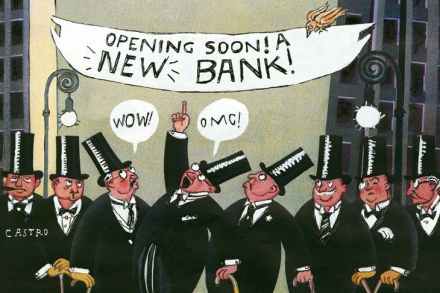The case for keeping business taxes low
Why should business pay tax at all? That’s a provocative but forlorn question to ask in Budget week. Business pays corporation tax on profits because that’s what voters expect, partly because many are conditioned to believe profit is a sin and partly because all would prefer to pay less tax themselves. Investors pay tax on capital gains because — as the American bank robber Willie Sutton said of his crimes — that’s where the money is. And companies pay more tax as business rates on premises because that’s the easiest way to collect contributions towards public services from which they benefit — but it’s also an easy levy to relieve















